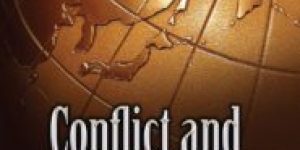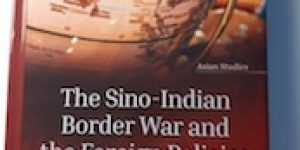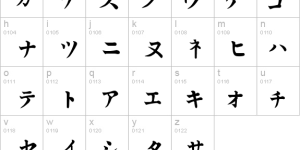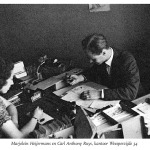My Story ~ 8. From Chinese Country Boy To An Australian Professor
No comments yet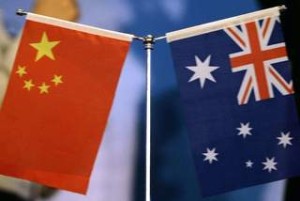 “At the Olympic Games I would be delighted to see the national flags of both China and Australia flying as one.”
“At the Olympic Games I would be delighted to see the national flags of both China and Australia flying as one.”
Before I left China, I worked at the Changchun Geography Institution of China Academy of Sciences. During the English language training before I left China, the English teacher who was from an American church gave every trainee an English name. I was called Mike.
I came from the countryside, where my ancestors have been farmers for generations. My hometown is called Yangmingpu, a town where the Japanese invaders built an air base which was bombed by Chinese army. After I graduated from high school in 1976, I worked as the chief of Youth League Branch of my village; in addition, I was the assistant instructor of the village in addition to being a militiaman. In the year 1977, the college entrance examination system resumed, and most of the high school graduates started to prepare for the college entrance exams. Although I had my high school education in my county, I was not good at math, physics, and chemistry, especially inorganic chemistry and organic chemistry. At that time education in rural schools was taught without textbooks and there was no standard curriculum. After I graduated from high school, I held an administrative post in my village; as a result I had almost no time to review my lessons to prepare for the college entrance examination, so I went back to county high school and prepared for three months. I almost knew nothing about choosing which university and major, but I did know most boys chose science and engineering, therefore I chose science and engineering as my major. In my last application to Shanxi Normal College I choose physics as my major. After I got the letter of admission, I knew there were one major normal college and one major university in every province which would enrol you if you were lucky enough to be selected. As a country kid, all I was thinking was that as long as I could be a university student, I would get a job and be able to earn a living, so I didn’t care which university accepted me. A Normal university was better, because they had free tuition, and students would get a food coupon and an allowance, so that was my preference. Finally, much to my surprise, I was admitted to Shanxi Normal University my major geography. I thought it was typing error, because I chosen physics not geography. I was worried, so I went to ask the Taiyuan Admission Office what had happened. Staff in the office told me they did not make a mistake, because the Department of Geography belongs to science and engineering. They also said the Department of Geography is the best department in the university. Students graduating from this department need not be teachers but could work at the Seismological Bureau, Hydrologic Station, and Land and Resources Bureau. I was very happy, so I studied very hard and achieved good results
As a child born and raised in the countryside, I knew that the Letter of Admission to a university was extreme important, it meant that I was no longer restricted to a life in the countryside. I slowly began to love university life. At that time students who went college in 1977 and 1978 studied very hard. I also tried my best to work hard; I was chosen to be the study monitor. If you wanted to be in that position you had to be the top student as the top student, I got the highest average scores when I graduated from the university. Back then, the knowledge and teaching quality of my teachers was not of a high standard. Most of them were from the May Seventh Cadre School, and they simply repeated what the books said, so we had to study on our own. I started learning English from scratch. However, after one year’s study, I took part in an English speaking contest and got very good scores in the non-English major group. I was the only student awarded the prize from my department, which encouraged me to study much harder. When I was a junior, I heard I could sit the Master’s degree test, I started to prepare. After the test, I got letters of admission from two different departments: Department of Physics and Department of Chemistry. I was the first person to get this qualification in my department. That year, only three students qualified in my university. I chose Changchun Geography Institution of China Academy of Sciences to further my studies. As a student from the countryside, this was an outstanding achievement. I was quite excited to get the Letter of Admission. If going to university was an important step in my life, to obtain a Master‘s degree would make life even better.
Three years later, I was assigned to the Academy of Sciences. The Academy thought highly of me, but it was hard to further my study abroad. Being part of the first batch of graduates after the Culture Revolution, the Academy was unwilling to let me go abroad. Many of the graduates wanted to be go abroad, after working for three years, I was chosen to be a visiting scholar at the British Columbia University in Canada. My mentor was the head of department at the Institution of Asian studies. That year, after much communication we devised a study program He came up with a new theory, which focused on Asian urbanization and the different characteristic of Asian megacities. A lot of students were engaged in this project, some of whom did research into the Yangtze River delta, Pearl River delta and Australia. I chose to study Dalian-Shenyang city and Singapore city. My mentor encouraged me to sit the TOEFL test, and then got a scholarship which was the beginning of an academic career of me.
My wife and children were still in China, so I didn’t know whether I should continue with my study abroad. At that time, I did not apply for a green card. Considering my family, my status as one of the first assigned postgraduates, and the good treatment the Academy had given to me, I had no choice but to return to China. Still undecided, I got help from my mentor and finally, I decided to stay abroad. Due to my mentor’s high standing in Asian studies, the Canadian ambassador to China and the cultural counselor would have background lectures before they went to China. My mentor wrote to my university, in which he highly praised me and asked to help with my wife and children’s visa. Because of my mentor’s letter, my wife and children got the visa, and I also became qualified as a Ph.D.
It was quite tough for me to get a doctorate. I studied social science which in the western world is quite hard. In 1995, after I finished my doctorial thesis, I started to look for a job. I finally obtained a position at the University of Melbourne. I got the interview with my schoolmate who was from Vancouver. I was not very confident because he was from an English speaking country.
I had the interview in Los Angeles. The five interviewees including a dean and an Australian student made me think that it would be impossible for me to be successful. However, with no pressure, I performed well and was accepted which was surmised me greatly. Many years have passed, but I still remember when the interviewer told me that I had made a deep impression on the dean and professors. And they liked my academic research methods. Also as a Chinese, I had more advantages because of my study in China than people from other countries. At that time, I had already obtained Canadian citizenship. Getting this job could be seen as the third important turning point in my life, which influenced my family’s future.
Life in Australia went well. In my college’s Asian studies research group, I focused on Asian development, environmental issues, issues of migrant workers, studies on water resources, and food security problems. We cooperated to some extent on urbanization development from the perspective of geography. I rose from a lecturer to a senior lecturer, to an associate professor and finally to a professor. During this process, I also took charge of teaching, and did some clerical work. Then I mainly took the lead in some of China’s social sciences fund program. I also instructed 10 doctoral candidates and postgraduates. In the last two years, I have worked with others on three books and more than ten articles. When I was the dean, I instructed my students, and assisted with domestic and overseas projects, I was very busy and under a lot of stress.
Moving from China to Canada, then from Canada to Australia, I have experienced the Sino-western cultural differences. Driving in Australia takes a while to adapt, but life here is much more relaxed. Prices in Australia are quite high, especially the price of cars. Differences studies can also be found. In China, staff are assigned houses, but here I had to find and rent a house, However, if you work hard and save your money you can buy your own house; In China, postgraduates and young teachers often work at weekends and work late, in Australia, no one works at weekends. Another difference is that I only take a two-hour-lesson of one course during the week, plus 3 to 4 chapters of reading and a one-hour discussion period. If the chapter reading exceeds two hours the students would complain about the teacher. However, compared to China, there are no other obvious differences in aspects such as values, privacy and making friends etc.
From the life in the countryside to a life at university was like changing worlds. My life except for several big events is going well, smooth sailing. Perhaps it is God’s will or Fate that I finally choose Australia in which to spend the second half of my life I get up early but go home late and give lessons in English. I have bought and sold houses as well as renovated and up-graded houses. I am satisfied that I live an ordinary life.
Undoubtedly in the academic field, you have to follow the rules of the game and you have to know how to act in the role. Whether natives or outsiders. You must understand the rules of the game, what kind of articles to write , what kind of research to undertake, which projects are of great significance, and how to obtain projects, etc., A few years after I got my PhD degree, I was qualified to guide doctoral students. I get along well with my colleagues, and we do research projects together. It is safe to say that I took a leading role in Asian and China studies. I have established myself in that field of study. I now go to China with students on field courses, field research and analysis. These days there is great cooperation between me and my colleagues. Making the best of both worlds and having an inquisitive mind enabled me to obtain my own position in my university. All the above makes me feel at ease, and I have gradually integrated into local life. I consider Australia to be my second home.
However, there are cultural differences between Chinese and Australians. Some people call us “banana”, but I don’t think so. I came to Australia in the 1980s, and we have a similar way of thinking, which means we have potential and we can quickly adapt to change. But some Chinese overseas students do things according to the Chinese way of thinking and they have no spirit of adventure. They do not follow their mentor’s advice and example; they only take action when their mentors tell them what to do. This is a challenge I have met after I came to Australia. The second doctoral student I guided did not work, steadily and in an orderly fashion. I tried my best to help him, but he still did not change his ways, and did things in a secretive way. This is a negative example of my experience as a supervisor of a PhD student, but I think it is cultural differences caused this problem. I also have some successful examples. One of my PhD students works as a superintendent in a research centre of the University of Queensland, other have became university teachers. I have learned that Australian students know the process of their courses very well, and they actively communicate with their mentors. As a Chinese, I always try to protect Chinese students, but there should not be too much special treatment. I always try to improve my Chinese students’ spirit of adventure, guiding them to successfully finish their studies, and enhance their understanding of life.
I came to Australia when I was 27. I may have been a little immature, but I had an international perspective and a world view. If I completely give up on myself, I would not be me myself. In my experience, I think whether engaged in study or doing business, everyone has ambition and drive. Without these qualities, a person is of little value. Playing games should be under the guidance of rules. The reason that I can keep my position is that I have a Chinese background, and I know Chinese Culture. It is hard to find a person with similar experience and background. I can take a group of people back to China to do research, and receive respect and admiration for my methods and ability.
In Australia, as a Chinese, I am a professor with a Chinese face and a deep knowledge of Chinese culture, which fills me with pride, no matter in what the occasion.
I recall that I attended an international strategy conference at a university. The president of the university was present, he was quite curious when I was proudly introduced the prospects for the Chinese market. He also wanted to be updated on the latest information, I was happy to know that he valued my input, when we relaxed together chatting; the topic included some aspects of local culture. They love to talk about sport, like cricket, rugby and football. Unfortunately I do not understand the local culture very well, so I do not feel comfortable with it. When we study pure theory, we will face some abstract words, which sometimes I don’t clearly understand. When they have word games, I feel awkward; I don’t know their culture, their celebrities, and sports news. Someone once asked me whether I have been accepted into Australian mainstream society. My answer is fifty-fifty. Having formal dinner parties, chatting with colleagues, drinking playing cards, joking and laughing makes you feel part of the circle. This is the first fifty. The second fifty is not about whether taking part or not, it is about whether you want to or not. I have my own circle. We get together brag, and drink wine at the weekend. But if there were foreigners present, it would not be so harmonious, and enjoyable in such a situation I would feel they are the “foreigners” in my own cultural circle.
To support my feeling it seems that even Australians have their own family and circle of friends which is not that easy to break into.
When asked the question “Which is your home, Australia or China?” I always reply Australia. But my spiritual home will always be China. I do hope my country will continue to develop and prosper. But when I go back, I find it hard to fit in. China is my ancestor’s home, and for people like me it is not my current home.
I’ve been asking myself: if given a change to work in China and go back there to live, will I fit in? Well, I go back four or five times a year and I know well the rules and customs here. Even a little child eating outside with parents will order the waiters around and people accept this. Actually I feel embarrassed living in China the shouting and queue-jumping in public, the money worship and the focus on job promotion. That uncomfortable feeling makes me a stranger in my homeland and I no longer feel part of my country.
Although I live in Australia, my heart belongs to China. I’m now an honorary professor of three universities. Being involved with current research programs at several domestic universities, I sincerely hope to help educate more PhD’s for China and support them in both the international and domestic academic fields. I hope to enhance the friendship between China and Australia. I’m Australian with a Chinese face, a Chinese heart and Australian feelings. I hope both the Chinese and Australian flags will proudly fly above the Olympic Games venues. In this green land with a peaceful attitude, let us relax, free our imagination, feel the sunshine, enjoy the beautiful beaches, humanity, and embrace this wonderful world.
You May Also Like
Comments
Leave a Reply



